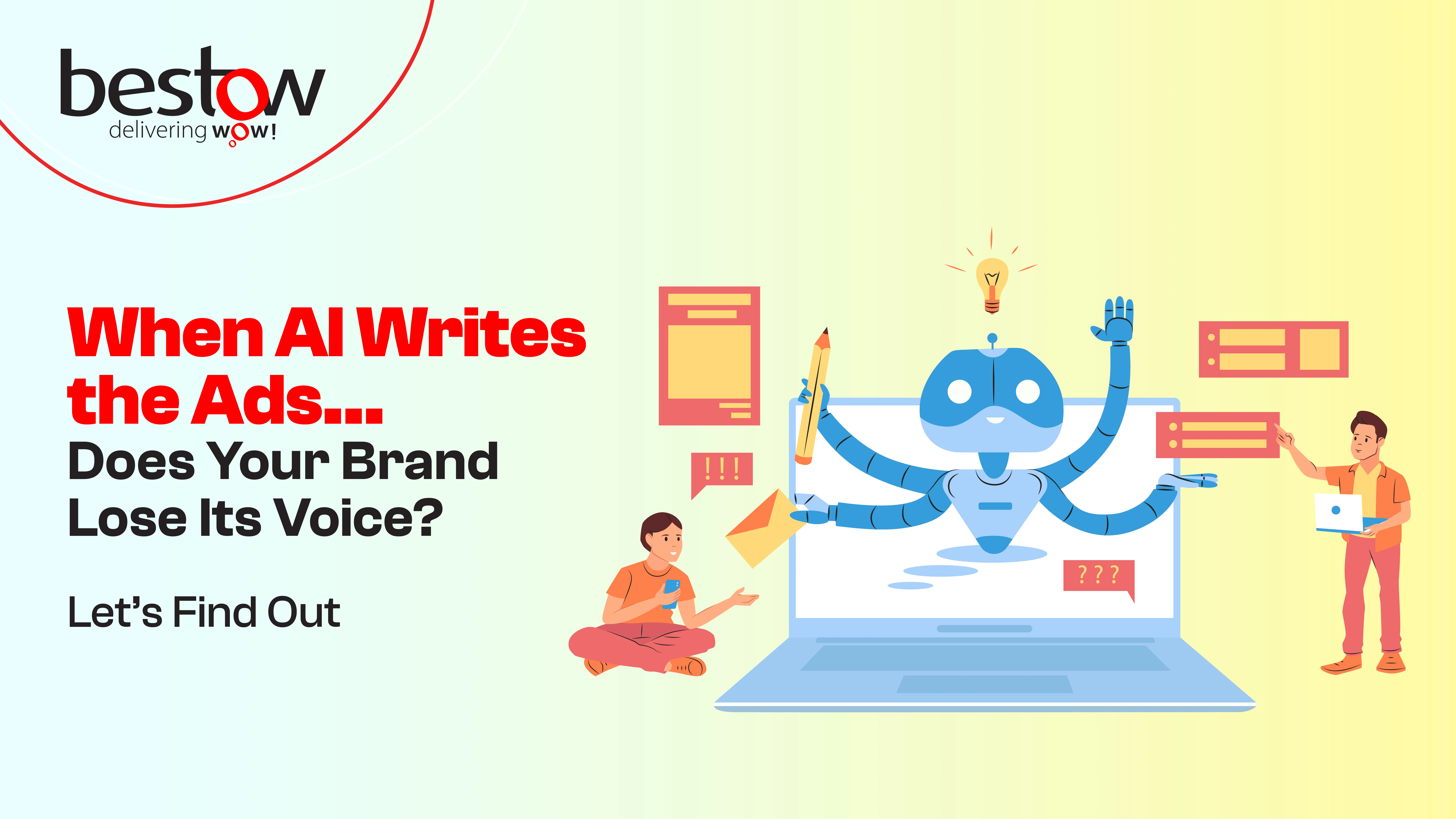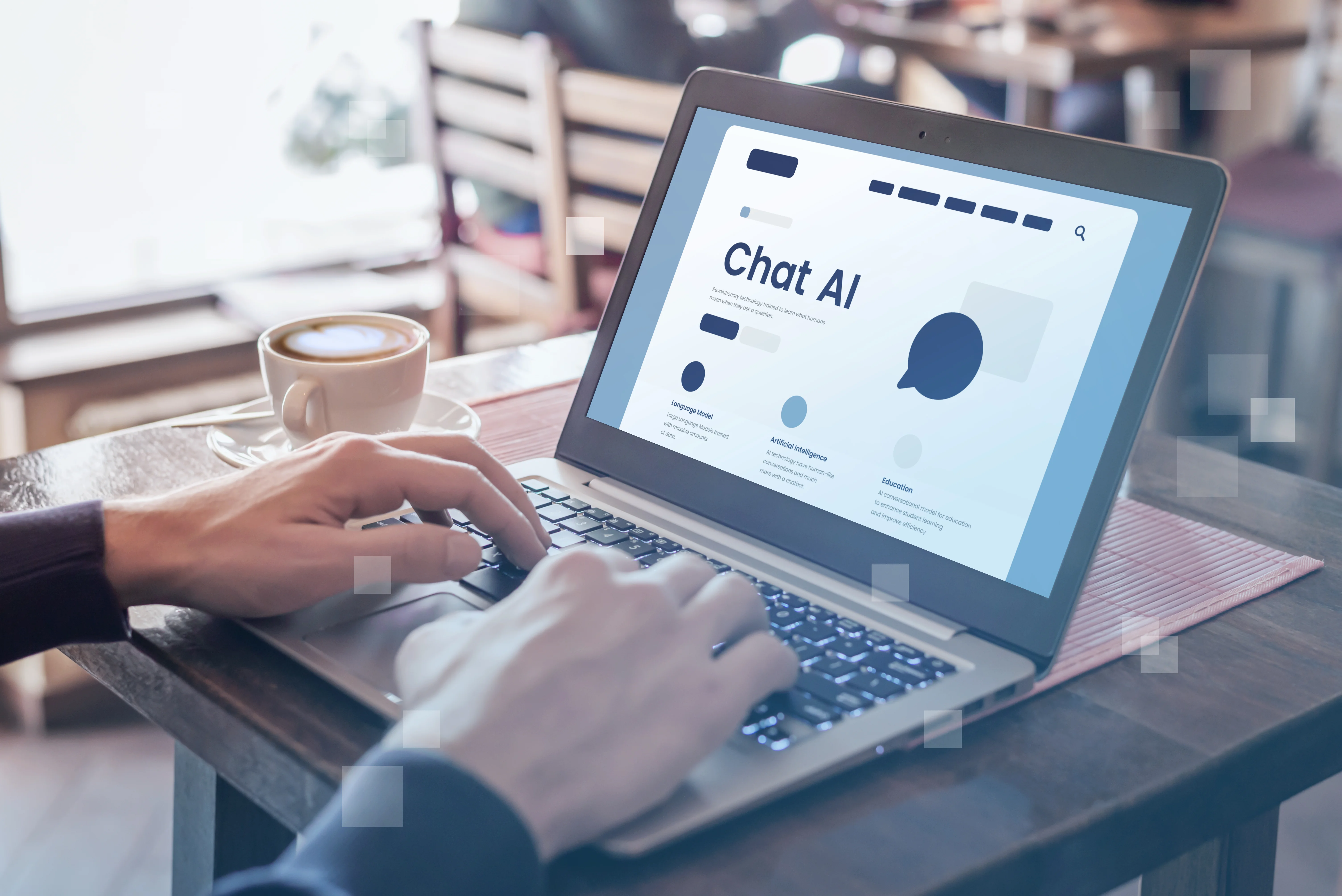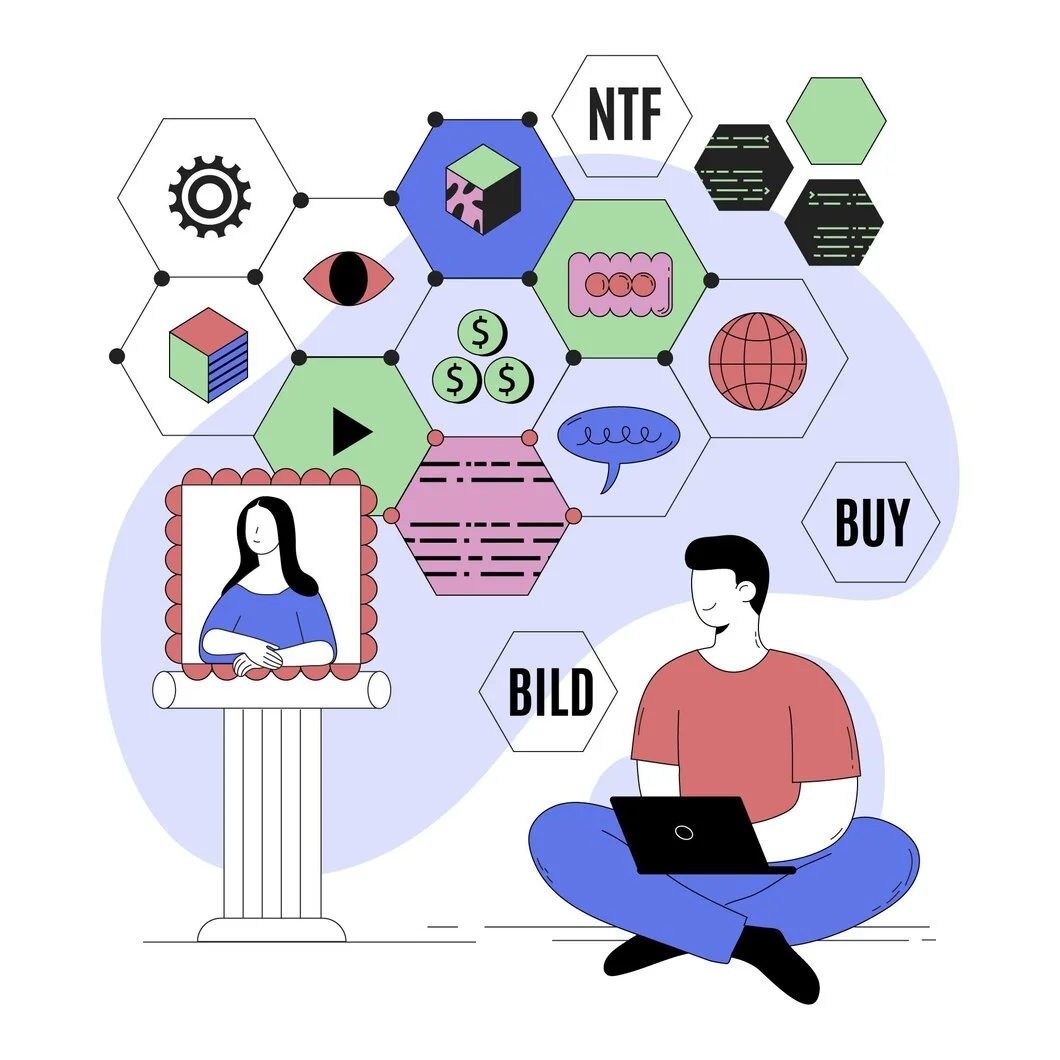Is AI Killing Creativity in Marketing? A Gujarat Business Perspective

24/09/2025
Start Listening
Is AI Killing Creativity in Marketing? A Gujarat Business Perspective
The question, “Is AI killing creativity in marketing?” has become a heated debate in boardrooms, digital agencies, and small businesses across Gujarat. On one hand, AI-driven content creation is revolutionizing efficiency, helping businesses save time and cut costs. On the other hand, concerns are rising that overreliance on machines could strip marketing of its soul, its creativity.
For businesses in Gujarat, where local storytelling and cultural nuances play a significant role in customer connection, this debate is even more relevant. Can AI truly replace human imagination, or does it simply change the way creativity works in marketing? Let’s unpack the impact.
The Rise of AI in Marketing Creativity
AI has rapidly become a cornerstone of modern marketing. It empowers businesses with data-backed insights, automation, and the ability to scale campaigns like never before. Yet, with all this speed and precision, an important question emerges—what happens to the human touch that makes campaigns memorable?

From automated ad copies to AI-generated blogs, businesses are increasingly using tools to churn out content at scale. This enables small businesses to compete with larger players in digital marketing. But speed doesn’t always equal originality.
AI excels at personalization, predicting consumer behavior, automating campaigns, and optimizing performance in real time. For Gujarat’s SMEs, this means efficient campaigns, but it raises the question: are campaigns becoming too mechanical?
While AI helps streamline operations, it often lacks the cultural sensitivity and emotional depth that are essential for crafting strong brand storytelling. This limitation forces brands to ask, Are we trading authenticity for convenience?
At Bestow, we don’t just automate—we humanize. Our team helps Gujarat businesses harness AI for efficiency while preserving the cultural storytelling that makes brands unforgettable.
Discover how Bestow can elevate your marketing
Discover how Bestow can elevate your marketing
Why Human Creativity Still Matters
Despite AI’s rise, marketing isn’t just about data points—it’s about evoking emotions, building trust, and telling stories that people remember. Human creativity brings originality, wit, and relatability that no algorithm can fully replicate.
Here are some areas in which human creativity still shines:
1. Storytelling with Cultural Context
AI may generate grammatically correct content, but it often misses the nuance of local culture. People connect to stories rooted in identity, festivals, and shared memories.
Example : During Navratri, Ahmedabad-based snack brands like Balaji Wafers often tie campaigns to Garba nights, celebrating tradition while promoting products. An AI can suggest “festival discounts,” but it takes human imagination to link flavors with the rhythm of celebration.
2. Humor, Satire, and Relatability
Algorithms can’t craft witty one-liners or satire that lands well in cultural settings. Humor relies on timing, tone, and shared social context—areas where humans excel.
Example : Amul’s iconic topical ads have thrived for decades because they use satire to comment on events while staying brand-relevant. Try asking an AI to recreate that, and you’ll likely get a stiff, literal copy that misses the spark.

3. Emotional Depth and Trust Building
Trust isn’t built solely on data; it’s earned by demonstrating empathy and authenticity. Humans can inject vulnerability, emotion, and values into campaigns—something AI cannot authentically mimic.
Example : A Surat textile house promoting bridal sarees doesn’t just talk about fabric quality. They narrate stories of heritage, family, and wedding emotions. AI can list features, but it can’t weave an emotional thread that connects mothers, brides, and traditions.
4. Bold Ideas and Risk-Taking
AI thrives on patterns and past data, but creativity often stems from breaking patterns—thinking beyond what has worked in the past. Risk-taking, experimentation, and originality are deeply human traits.
Example : A Vadodara café running an offbeat “Garba + Coffee Night” campaign would never come from AI’s predictive logic. It takes human vision to see opportunity in blending unexpected cultural and lifestyle trends.
5. Shaping Brand Personality
AI can mimic tone but doesn’t truly embody personality. A brand’s quirks, voice, and identity must feel alive, not manufactured. This is where marketers bring imagination into play.
Example : Ahmedabad’s homegrown brands, such as Havmor ice cream, succeed not just with flavors but with fun, quirky campaigns that give the brand a youthful, playful personality. AI might optimize ad placement, but it won’t invent the brand’s “character.”
6. Turning Data into Experiences
While AI provides insights, humans turn those insights into memorable experiences. It’s the leap from knowing “what” to crafting “why it matters.”
Example : AI may predict that millennials in Rajkot prefer late-night food orders. A human marketer can transform that into a creative campaign like “Midnight Khichdi Specials” tied to student life, exams, or family traditions.
Pros and Cons of AI Marketing
Like every innovation, AI in marketing comes with both opportunities and trade-offs. It offers efficiency, scalability, and cost-effectiveness, but often risks losing the originality and warmth that human-driven campaigns deliver.
Let us now discuss the pros, cons, and the best approach to using AI for Gujarat-based SMEs:
| Aspect | Pros | Cons | Best Approach |
|---|---|---|---|
| Efficiency |
AI-driven content creation saves time and scales campaigns quickly. |
Speed may compromise originality and emotional depth. |
Use AI for repetitive tasks while maintaining a human-led creative direction. |
| Cost-effectiveness |
Reduces marketing costs, making digital marketing for small businesses more affordable. |
Risk of over-automation leading to generic, cookie-cutter campaigns. |
Balance budget savings with investments in human creativity. |
| Data & Insights |
AI-driven marketing strategies ensure data-backed decisions and predictive analysis. |
Data-driven content may miss cultural nuance or context-specific relevance (especially in Gujarat). |
Combine AI insights with local storytelling for impact. |
| Customer Impact |
Personalization at scale improves targeting and user experience. |
It can feel impersonal if not balanced with an authentic brand voice. |
Blend personalization with cultural authenticity to strengthen brand connection. |
The Future of Creativity in Marketing
As AI becomes more integrated into marketing, the real challenge isn’t whether it kills creativity but how it reshapes it. The future lies in building strategies where data-driven precision meets human imagination, ensuring campaigns feel both authentic and effective.
Looking ahead, the most effective marketing strategies will merge AI-driven insights with human storytelling. This hybrid approach allows brands to remain authentic while staying efficient.
For Gujarat’s small businesses, the winning playbook isn’t choosing between AI and humans, it’s leveraging both. AI handles scale, while humans ensure campaigns stay personal and culturally relevant.
Instead of “killing” creativity, AI is transforming it, shifting the marketer’s role from execution to ideation and strategy. Creativity isn’t dying; it’s evolving.
Turning Insight into Action
At Bestow, we help Gujarat businesses find the sweet spot between AI-driven efficiency and human creativity. By blending AI-driven content creation with authentic storytelling, we ensure your brand remains both competitive and relatable.
Ready to unlock this balance for your business?
Social Media Marketing services
Consult our Digital Marketing experts
FAQs
Marketers use AI to handle repetitive tasks like data analysis and content drafts, freeing humans to focus on big ideas. This balance ensures campaigns stay efficient without losing originality.
They let AI streamline execution while reserving storytelling for human input. The result is campaigns that are both data-driven and emotionally resonant.
Over-reliance can lead to generic, repetitive content that fails to connect emotionally. It also risks diluting a brand’s unique voice.
AI is not replacing creativity; it’s reshaping how it’s applied. The spark of original ideas still comes from human imagination.
AI accelerates the process by handling data, but it also pushes humans to focus on deeper strategy and emotional storytelling. Rather than replacing creativity, it amplifies it when used wisely.
Brands may lose authenticity if AI-generated content feels detached from real consumer experiences. It can also create ethical concerns if personalization crosses privacy boundaries.
Many SMEs use AI tools for social media scheduling, customer targeting, and ad optimization. These tools help them compete with larger brands without heavy costs.
If used without human input, yes, AI content can miss cultural context and personal touch. But when paired with local storytelling, it enhances rather than diminishes authenticity.
The future lies in collaboration: AI will handle scale, while humans inject originality and emotion. This partnership will define next-generation brand campaigns.
Human creativity brings empathy, humor, and cultural nuance, qualities AI cannot replicate. These elements make brands relatable and memorable.
Categories
Recent Blogs
Send us a message
We'd love to hear from you
Let's build a plateform that works for you busines and the advertisers who trust it.
Talk to Our Expert